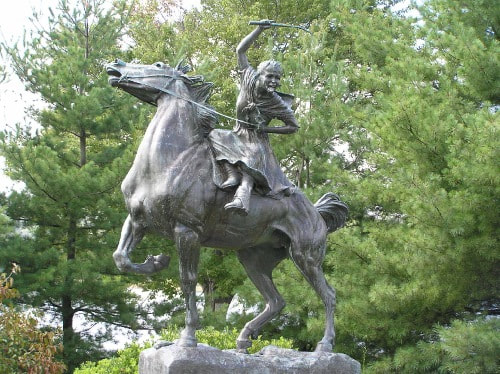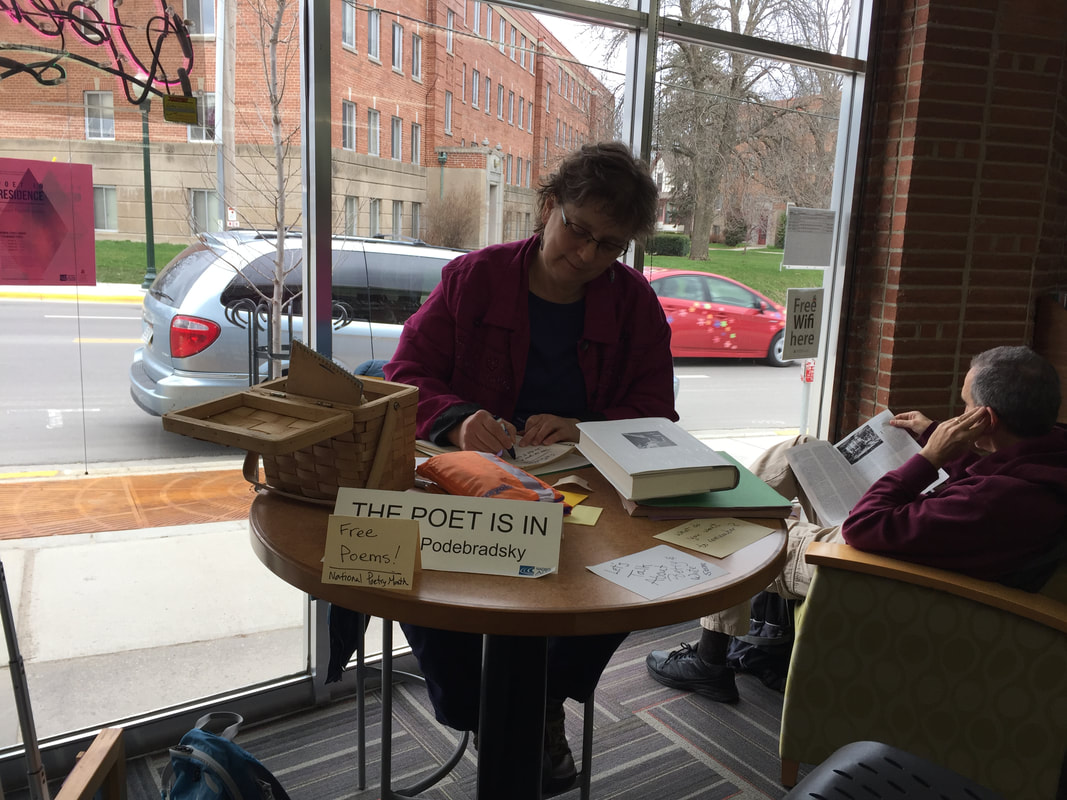|
Good novels and good movies draw the reader/viewer in. They generate emotion and make readers/viewers care. Writing conveys more unspoken thoughts and leaves more visuals to the imagination. Film does the opposite, while paring down complex story to fit within two hours.
Revising an overly introspective passage of fiction a few months ago, I wanted to make it read more like a movie. At the University of Wisconsin Writers’ Institute earlier this month, Tim Storm and Ann Garvin told why this doesn’t work. Stage business in a movie—turning the key in the ignition, taking a bite of salad—adds realism without forcing itself on your attention. On the printed page, by contrast, stage business interrupts the story. Tim and Ann advised novelists to convey only details the character would notice, leaving readers to fill in the background.
4 Comments
“Listen, my children, and you shall hear / Of the midnight ride . . .”
Through the night of April 26, 1777, sixteen-year-old Sybil Ludington rode forty miles in a thunderstorm to muster militiamen against the British. She roused the countryside after her father, a militia colonel, received the message that drunken Redcoats were burning Danbury, Connecticut. The militiamen weren’t able to save Danbury, but they stopped the British advance. Soon afterward, energized by the incident, 3,000 Connecticut men joined the American army. Statues, historical markers, and a 1975 postage stamp commemorate this hero of the American Revolution. She rode twice as far as Paul Revere, so why didn’t I learn about her in school? Perhaps because Longfellow never wrote a poem about her. Maybe he tried and gave up. Ludington is a lot harder to rhyme than Revere. April is National Poetry Month. At the Monroe Street Library here in Madison, Wisconsin, Poet-in-Residence Susan Podebradsky writes and chats for an hour a week behind a sign that reads “The Poet Is In.”
“It gives people the opportunity to have a personal experience with poetry in real time, face to face,” she says. Adults and children suggest a word or topic, for which she writes them a poem on the spot. Others stop by to discuss their favorite poem, share one they’ve written, browse her stack of poetry books, or create a short poem from words on wooden blocks. She’s part of a group called Spontaneous Writing Booth, which offers poetry at various community events. It doesn’t have an online presence yet. “That would take organization, and we’re spontaneous.” Her two remaining sessions at Monroe Street are Tuesday, April 16, and Wednesday, April 24, both days at four o'clock. English is endlessly fascinating, at least to me. So are the brains that master a zillion linguistic rules without knowing they exist. Consider these words or phrases (for today’s purposes, let’s not quibble the hyphens):
Chit-chat Clip-clop Click-clack Criss-cross Dilly-dally Ding-dong Knick-knack Flip-flop Mish-mash Hip-hop Pitter-patter Ping-pong Riff-raff Sing-song Wishy-washy Tick-tock Zig-zag Tip-top We learn in school about rhyme and alliteration, but who teaches about word pairs where only the vowel changes? The vowels must follow a particular sequence: i before a, or i before o. Can you think of any common such pairing in which the order is reversed? Small wonder learning or teaching English as a second language is so challenging. Here’s an entertaining read about how this vowel-order rule bumps up against another linguistic sequencing rule you may not have known you knew. The situation is perilous. My protagonist recalls how she got into this mess, imagines the worst that can happen, and feels her heart pound and her palms sweat.
Reader feedback: “I don’t feel her fear.” It’s come up more than once, from different readers in response to different scenes. I’ve known fear; I’ve shivered over scary novels; I’ve read posts online about conveying character emotions. The problem persists. Help wanted! What makes a portrayal of dread ring true to you? Does time speed up or slow down? Does the mind focus on details of danger or the fly buzzing in the corner? How do your favorite authors draw you into their characters’ fear? |
AuthorI'm a historian who writes novels and literary nonfiction. My home base is Madison, Wisconsin. Archives
July 2024
|


 RSS Feed
RSS Feed